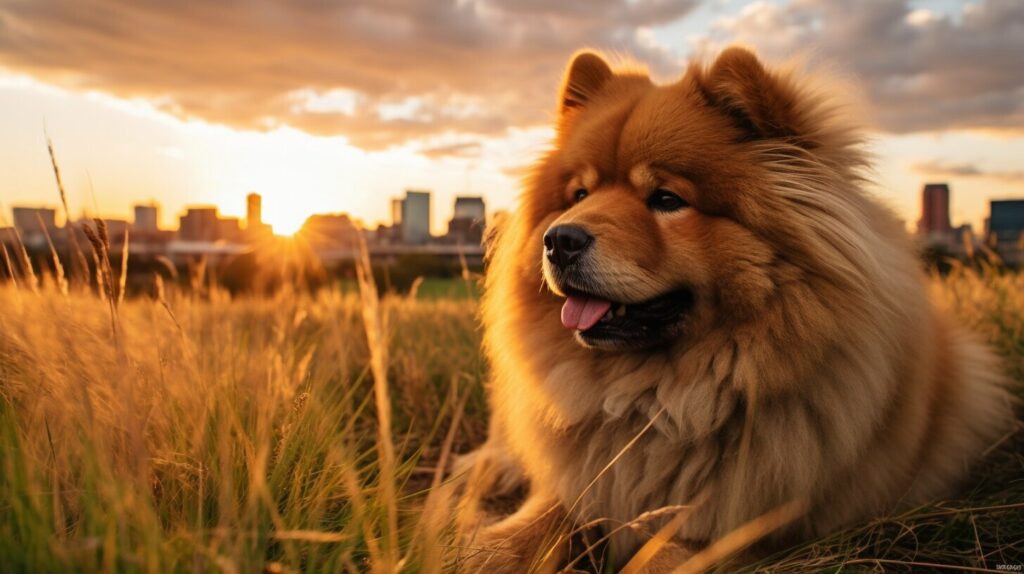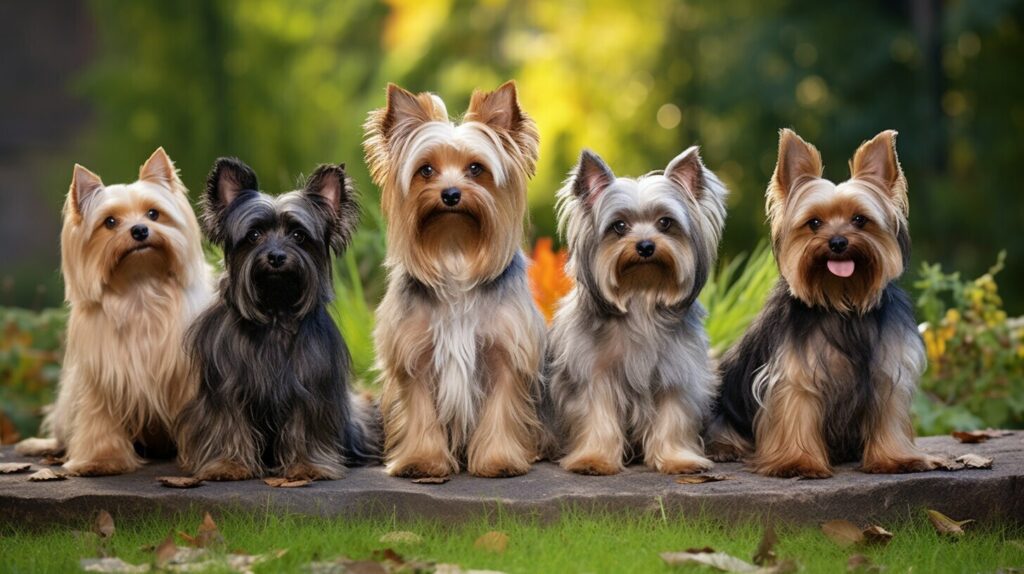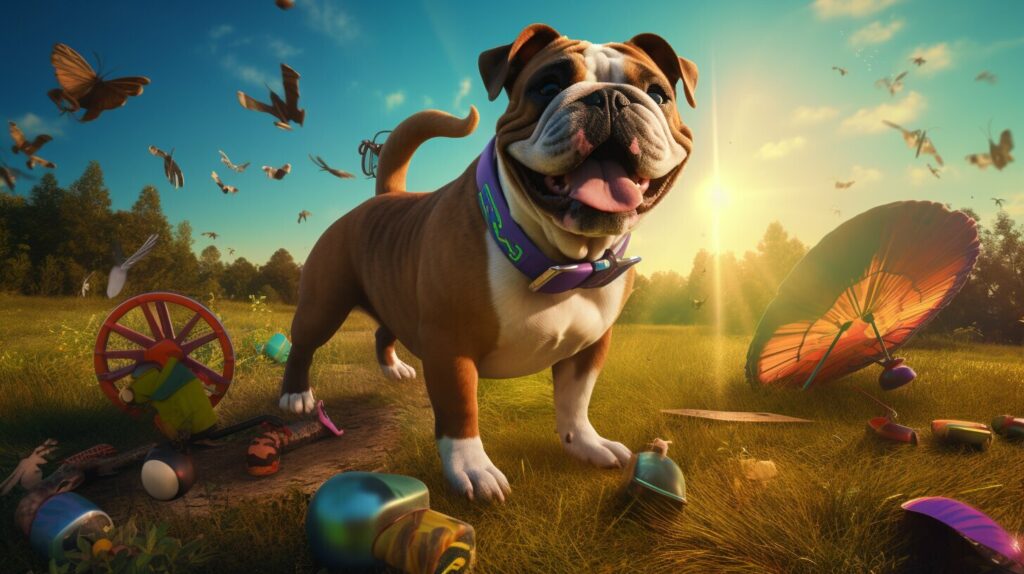If you’re considering bringing a new furry friend into your home, why not consider a Chow Chow dog? These unique and fascinating dogs have a rich history and a number of distinctive characteristics that set them apart from other breeds. In this article, we’ll delve into the world of Chow Chow dogs, exploring their breed, temperament, grooming needs, training requirements, health considerations, and more. By the end, you’ll have a better understanding of this amazing breed and whether they might be the perfect companion for you.
Key Takeaways:
- Chow Chow dogs are a unique and fascinating breed with a rich history and distinctive characteristics.
- This article will cover a range of topics related to Chow Chow dogs, including breed information, temperament, grooming, training, health considerations, and more.
- Whether you’re a long-time dog owner or considering bringing a new furry friend into your home, there’s plenty to learn and discover about Chow Chows.
Understanding the Chow Chow Breed
The Chow Chow breed is a fascinating and unique breed that originated in China over 2,000 years ago. They were originally bred for hunting, herding, and protection.
The Chow Chow is a medium-sized dog with a stocky, muscular build. They typically stand around 17-20 inches tall and weigh between 45-70 pounds. One of the most distinctive features of the Chow Chow is their thick, plush coat, which can come in a variety of colors including red, black, blue, cinnamon, and cream.
While they may look fluffy and cuddly, Chow Chows have a reputation for being quite independent and aloof. They are devoted to their owners but tend to be reserved around strangers and may require careful socialization to prevent aggression towards others.
What Makes the Chow Chow Breed Unique?
| Physical Characteristics | Personality Traits |
|---|---|
|
|
If you’re considering adding a Chow Chow to your family, it’s important to understand the unique characteristics of this breed. They require regular exercise, grooming, and socialization to thrive. However, their loyal and protective nature can make them wonderful companions for the right owner.
Chow Chow Puppies: Your New Fluffy Companion
If you’re considering bringing home a Chow Chow puppy, congratulations! These fluffy companions are known for their loyalty, independence, and unique appearance. However, it’s important to be prepared for the commitment of caring for a Chow Chow.
When it comes to care needs, Chow Chow puppies require a lot of attention and socialization. They can be prone to separation anxiety if left alone for long periods of time, so be sure to set aside plenty of time for bonding and play.
Training your Chow Chow puppy can also be a challenge, as they have a tendency to be stubborn and independent. However, with consistent training techniques tailored to their unique personality, they can be trained successfully.
When it comes to grooming, Chow Chow puppies require regular brushing and maintenance due to their thick double coats. Bathing should be done only as necessary, as over-bathing can strip their coat of essential oils.
Overall, a Chow Chow puppy can make a wonderful addition to your family as long as you’re prepared for their specific care needs. With plenty of love and attention, your new fluffy companion can bring years of joy and loyalty to your life.
Unraveling the Chow Chow Temperament
Chow Chow dogs are known for their unique temperament, which can present both rewards and challenges for their owners. Understanding the temperament of your Chow Chow is key to building a strong and healthy relationship with your furry companion.
Loyalty: One of the most cherished qualities of Chow Chow dogs is their unwavering loyalty to their owners. They are protective of their family and will go to great lengths to keep them safe from harm. This loyalty can manifest in behaviors such as following their owners from room to room, refusing to leave their side, and displaying a watchful eye over their surroundings.
Independence: Chow Chows are also known for their independent nature. They do not require constant attention or affection and can be content spending time alone. This trait can be a double-edged sword, as it can lead to stubbornness and a reluctance to follow commands during training sessions.
Protectiveness: Chow Chows have a natural instinct to protect their family, which can sometimes manifest as aggression towards strangers or other animals. It is important to properly socialize your Chow Chow from a young age to prevent aggressive behaviors from developing.
Reserve: Chow Chows are typically reserved around new people and may take time to warm up to strangers. This can be seen as aloofness, but it is simply a part of their personality and should be respected.
Temperament Challenges: The independent and protective nature of Chow Chows can present challenges for training and socialization. They require consistent and patient training techniques, tailored to their unique needs. It is also important to provide plenty of socialization opportunities to prevent aggression towards strangers or other animals.
Temperament Rewards: Despite their challenges, Chow Chows are incredibly loyal and loving companions. Their independent nature can make them low-maintenance pets, and their protectiveness can provide a sense of security for their owners.
Grooming Tips for your Chow Chow
Chow Chow dogs are known for their thick, plush coat that requires regular grooming to keep it healthy and clean. Proper grooming not only enhances their appearance, but it also prevents matting and skin irritations. Here are some grooming tips to keep your Chow Chow looking and feeling their best:
Bathing Frequency
Chow Chows should be bathed every 4-6 weeks to keep their coat clean and free of debris. However, excessive bathing can strip their skin of natural oils, leading to dryness and irritation. It’s important to use a mild, hypoallergenic shampoo and conditioner specifically formulated for dogs to prevent skin irritation.
Brushing Techniques
Chow Chows have a double coat, with a soft, thick undercoat and a coarser outer coat. Regular brushing is essential to prevent matting, tangles, and excessive shedding. Use a slicker brush to remove loose fur and a wide-tooth comb to detangle any mats or knots. Be gentle, but thorough, to avoid hurting your furry friend.
Coat Care
In addition to regular brushing, your Chow Chow’s coat may require some additional care depending on their lifestyle. If they spend a lot of time outdoors or in dusty environments, a quick wipe down with a damp cloth can help remove debris. Regular trimming of the hair around their paws and anus can also prevent matting and keep them clean.
Professional Grooming
If you don’t have the time or experience to groom your Chow Chow yourself, consider taking them to a professional groomer. Professional groomers have the expertise and proper equipment to properly groom your furry friend, leaving them looking and feeling their best.
By following these grooming tips, you can ensure your Chow Chow stays healthy, happy, and looking their best. Regular grooming not only enhances their appearance but also strengthens your bond with them.
Training Your Chow Chow: Challenges and Rewards
If you’re considering bringing a Chow Chow into your family, it’s important to understand their training needs and unique personality traits. While Chow Chows are intelligent and eager to please, they can also be stubborn and independent, making training a potential challenge.
Consistent training techniques tailored to the Chow Chow’s specific needs are crucial for successful obedience. Positive reinforcement methods, such as treats and praise, work well with this breed, but harsh discipline tactics should be avoided. Training should begin early in a Chow Chow’s life with socialization and obedience classes, as these dogs can be reserved and wary of strangers.
Chow Chows respond well to firm but gentle training and consistency in commands. However, it’s important to avoid overworking them, as they can become bored easily and lose interest in the training process. Breaking up training sessions into shorter, more frequent intervals can help maintain their focus and engagement.
Chow Chows also have a strong sense of dominance and may challenge their owners’ authority. It’s important to establish yourself as the pack leader early on in the training process and to consistently enforce rules and boundaries.
In addition, physical exercise is important for a Chow Chow’s mental and physical well-being. Regular walks and playtime can help burn off excess energy and prevent destructive behavior due to boredom or anxiety.
Overall, training a Chow Chow can be a challenging but rewarding experience. With patience, consistency, and tailored training techniques, you can help your Chow Chow become a well-behaved and loyal companion.
Tracing the History of Chow Chow Dogs
The Chow Chow breed has a rich history dating back thousands of years in ancient China. They were originally bred for a variety of purposes, including hunting, herding, guarding, and even as a source of food. It is believed that their name comes from the Cantonese word “chou,” which means “edible.” Chow Chows were highly valued for their ability to withstand extreme temperatures and their fierce loyalty to their owners.
During the Han Dynasty in China, Chow Chows were favored as hunting dogs, particularly for their ability to track and hunt large game, such as wild boar. In later years, they were adopted as companion animals by Chinese aristocrats and royalty. It is said that the Emperor of China kept a kennel of 5,000 Chow Chows, and they were often given as gifts to foreign dignitaries.
The Journey to the West
The first Chow Chow to arrive in the United States was brought over by sailors in the late 18th century. However, it wasn’t until the late 1800s that the breed gained popularity in the Western world. In 1895, the Chow Chow was recognized by the American Kennel Club, and their distinctive appearance and temperament made them an instant hit.
Throughout the 20th century, Chow Chows continued to gain popularity as companion animals, appearing in movies and TV shows, and becoming a symbol of status and sophistication. Today, they are beloved pets all over the world, renowned for their beauty, intelligence, and unique personality traits.
Unique Characteristics of Chow Chow Dogs
Chow Chow dogs are known for their distinctive features that set them apart from other breeds. Some of these unique characteristics include:
| Characteristic | Description |
|---|---|
| Blue-black tongue | Chow Chows are one of the few breeds that have a blue-black tongue, which is believed to be an ancient trait that can be traced back to their ancestors. |
| Lion-like appearance | With their thick double coat, fluffy mane, and stately gait, Chow Chows bear a striking resemblance to lions. |
| Deep-set eyes | Chow Chows have distinctive deep-set eyes that are almond-shaped and have a slightly slanted appearance. |
| Straight hind legs | Unlike most dogs, Chow Chows have straight, sturdy hind legs that give them a distinctive gait. |
| Curling tail | Chow Chows have a unique curly tail that curls over their back, adding to their regal appearance. |
These characteristics are all part of what makes Chow Chows such a beloved breed. Their unique looks and regal bearing are just a few of the many reasons why they are such a popular choice for dog lovers.
Health Considerations for Chow Chow Dogs
While Chow Chow dogs are generally healthy, like any breed, they may be susceptible to certain health issues. As a responsible pet owner, it is important to understand these potential issues and take steps to prevent or manage them.
Common Health Issues
One health issue that Chow Chow dogs may be prone to is hip dysplasia, a condition where the hip joint does not develop properly, leading to discomfort and mobility issues. Other health concerns to watch for include eye problems such as entropion, where the eyelid rolls inward and irritates the eye, and ectropion, where the eyelid turns outward, leaving the eye exposed and prone to irritation and infection. Chow Chows may also be predisposed to skin allergies, which can cause itching, scratching, and skin infections.
Preventative Measures
Regular vet check-ups are important for monitoring your Chow Chow’s health and catching any potential issues early on. Keeping up with preventative care, such as vaccinations, tick and flea prevention, and regular dental check-ups, can also help maintain their overall wellbeing.
Another key preventative measure is maintaining a healthy diet and exercise routine. Obesity can lead to a range of health issues, including joint problems and heart disease. Be sure to feed your Chow Chow a high-quality diet that meets their nutritional needs and fits their individual activity level, and provide plenty of opportunities for exercise and play.
When to Seek Veterinary Care
If you notice any concerning symptoms in your Chow Chow, such as excessive itching, lameness, or changes in appetite or behavior, it is important to seek veterinary care right away. Early intervention can often prevent minor issues from becoming major health concerns.
Remember, by taking proactive steps to care for your Chow Chow’s health, you can help ensure they lead a long and happy life by your side.
In Conclusion
In conclusion, owning a Chow Chow can be a rewarding experience for the right person. These dogs are independent, loyal, protective, and have a unique appearance that sets them apart from other breeds. Before bringing a Chow Chow into your home, it’s crucial to understand their specific needs and temperament, as well as the potential health issues they may face.
Proper grooming, training, socialization, and regular veterinary care can help ensure a happy and healthy life for your Chow Chow. If you’re up for the challenge of owning a Chow Chow, the rewards can be truly amazing, and you’ll have a furry companion that will love and protect you for years to come.
FAQ
Q: What is a Chow Chow dog?
A: A Chow Chow is a breed of dog known for its distinctive lion-like appearance and blue-black tongue.
Q: What is the temperament of Chow Chow dogs?
A: Chow Chows are known to be independent, loyal, and protective. However, they can also be stubborn and challenging to train.
Q: How often should I groom my Chow Chow?
A: Chow Chows have a thick double coat that requires regular brushing to prevent matting. They should be groomed at least once a week.
Q: Are Chow Chows suitable for first-time dog owners?
A: Chow Chows are not recommended for first-time dog owners due to their strong-willed and independent nature. They require experienced handlers.
Q: What is the average lifespan of a Chow Chow?
A: The average lifespan of a Chow Chow is around 10 to 12 years.
Q: Do Chow Chows have any specific health issues?
A: Chow Chows are prone to certain health issues such as hip dysplasia, elbow dysplasia, and eyelid entropion. Regular vet check-ups are essential.
Q: How much exercise do Chow Chows need?
A: Chow Chows have moderate exercise needs. Daily walks and mental stimulation are important, but they are not typically high-energy dogs.



